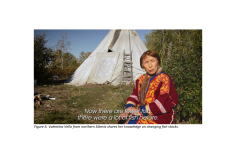The ‘whiteness’ of a surface. The higher the albedoThe 'whiteness' of a surface. The higher the albedo, the more the surface reflects light. Snow and ice have high albedos; a dark rock would have a lower albedo. Vegetation... More, the more the surface reflects light. Snow and ice have high albedos; a dark rock would have a lower albedoThe 'whiteness' of a surface. The higher the albedo, the more the surface reflects light. Snow and ice have high albedos; a dark rock would have a lower albedo. Vegetation... More. Vegetation and water also have low albedos. Most of Sun’s radiation is in the shortwave (visible) spectrum. The Earth as a whole reflects about 30% of this radiation back into space (and absorbs the rest, which helps warm the planet). Much of the Earth’s albedoThe 'whiteness' of a surface. The higher the albedo, the more the surface reflects light. Snow and ice have high albedos; a dark rock would have a lower albedo. Vegetation... More is due to clouds, but land surfaces with high albedos, like ice sheets and snow fields, also contribute. AlbedoThe 'whiteness' of a surface. The higher the albedo, the more the surface reflects light. Snow and ice have high albedos; a dark rock would have a lower albedo. Vegetation... More is important in climate changeAccording to the United Nations Framework Convention on Climate Change, climate change is change in the climate of the whole Earth or a region of the Earth that is believed... More since solar radiation (from the Sun) absorbed by the Earth affects global temperature and drives the global climateThe average weather we would expect over a long period of time (seasons, years, decades). Climate varies from place-to-place across the Earth. Climate is determined by long-term (over at least... More system.
Related contents
-
> New deliverable reports from WP7
NewsWP 7, Preparing for a future world: improving education and awareness at all societal levels, has published four deliverable reports based on a co-production of …
> Read more -
> TA Ambassadors
INTERACT TA Ambassadors are scientists who have conducted research at INTERACT stations with the support from Transnational Access. TA Ambassadors share knowledge –based on their …
> Read more


